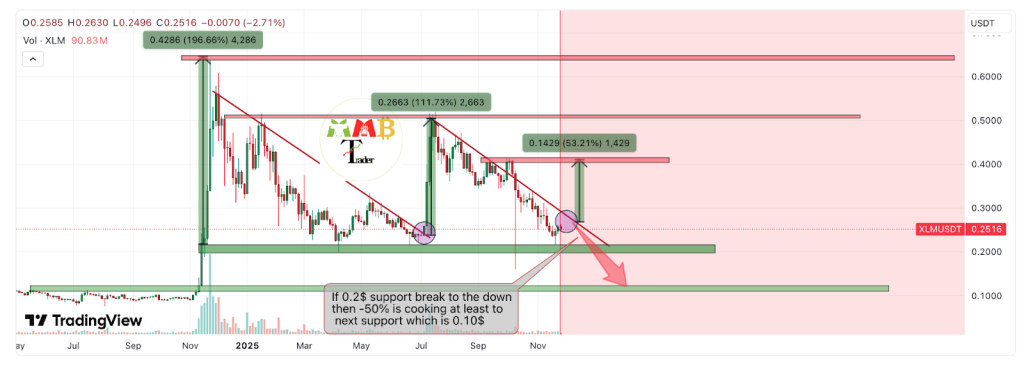BlackRock’s Bitcoin ETF (iShares Bitcoin Trust) is now the firm’s top-earning ETF, catalyzing record crypto ETF inflows and driving Bitcoin to a $126,223 all-time high. Institutional demand—$5.95B in weekly inflows—points to a structural shift as investors increasingly favor spot Bitcoin ETFs over traditional funds.
-
BlackRock’s iShares Bitcoin Trust becomes BlackRock’s highest-revenue ETF, signaling broad institutional adoption.
-
Crypto ETFs saw a record $5.95 billion weekly inflow, led by $3.55 billion into Bitcoin-focused products.
-
Deutsche Bank forecasts Bitcoin’s potential placement on central bank balance sheets by 2030, supporting long-term asset adoption.
Bitcoin ETF: BlackRock’s iShares Bitcoin Trust tops ETF revenue charts after record inflows; read the full analysis and key takeaways.
BlackRock’s Bitcoin ETF dominates revenue charts as crypto ETFs see record inflows, driving Bitcoin to a historic $126,223 high.
- BlackRock’s iShares Bitcoin Trust becomes its top-earning ETF, signaling a major investor shift toward digital assets globally.
- Record $5.95B inflows into crypto ETFs highlight surging institutional demand as Bitcoin hits a new all-time high of $126,223.
- Deutsche Bank predicts Bitcoin’s inclusion on central bank balance sheets by 2030, cementing its role as a global financial asset.
What is BlackRock’s Bitcoin ETF and why is it significant?
BlackRock’s Bitcoin ETF is a spot Bitcoin exchange-traded fund (iShares Bitcoin Trust) that provides institutional and retail investors regulated exposure to Bitcoin. Its rapid ascent to the firm’s highest-revenue ETF reflects massive inflows and marks a structural moment for allocation into crypto via mainstream investment vehicles.
How did the iShares Bitcoin Trust outperform traditional funds so quickly?
The iShares Bitcoin Trust generated an estimated $244.5 million in annual revenue, outpacing longtime leaders as investor flows shifted toward crypto exposure. Bloomberg Intelligence data shows the fund overtook names like iShares Russell 1000 Growth and iShares MSCI EAFE, driven by an unprecedented weekly inflow environment and fee-based revenue scaled to Bitcoin demand.
How large were recent crypto ETF inflows and which assets led?
Global crypto ETFs reported a record $5.95 billion in inflows for the week ending October 4, led by the United States with $5 billion, Switzerland with $563 million, and Germany with $312 million, according to market flow data reported by financial news services and CoinShares. Bitcoin-focused products accounted for $3.55 billion, while Ethereum attracted $1.48 billion.
What does this mean for institutional adoption and market structure?
These inflows indicate institutional investors are increasingly using spot ETFs as a regulated path to crypto exposure. Experts including James Butterfill of CoinShares note the inflows reflect growing recognition of digital assets as portfolio diversifiers. Deutsche Bank forecasts integration of Bitcoin onto central bank balance sheets by 2030, suggesting a potential long-term role alongside gold.
Frequently Asked Questions
How does a Bitcoin ETF generate revenue for an issuer?
An ETF issuer earns revenue primarily through management fees charged on assets under management and ancillary services. The iShares Bitcoin Trust’s high revenue reflects both large AUM and fee yield, translating record inflows into outsized issuer income.
Will central banks actually hold Bitcoin by 2030?
Deutsche Bank’s projection suggests growing institutional acceptance, but central bank policy decisions will depend on regulatory frameworks, reserve management strategies, and risk assessments. The prediction signals potential normalization, not a guaranteed outcome.
Are spot Bitcoin ETFs different from futures-based ETFs?
Yes. Spot Bitcoin ETFs hold Bitcoin directly or via custodial arrangements, closely tracking the asset’s spot price. Futures-based ETFs invest in derivatives, which can diverge from spot performance due to roll costs and contango/backwardation effects.
Key Takeaways
- Market Impact: BlackRock’s iShares Bitcoin Trust became the firm’s top-earning ETF, revealing deep investor appetite for regulated Bitcoin exposure.
- Flow Data: Crypto ETFs attracted $5.95B in one week, with Bitcoin receiving $3.55B and Ethereum $1.48B, signaling broad-based demand.
- Macro Implication: Institutional adoption is scaling; Deutsche Bank’s 2030 forecast indicates potential systemic acceptance of Bitcoin in official reserve strategies.
Conclusion
The rise of BlackRock’s Bitcoin ETF is a defining moment for digital assets, transforming how institutional capital accesses Bitcoin through regulated products. With record inflows and new revenue benchmarks, ETFs are reshaping market structure and raising questions about Bitcoin’s future role in official reserves. Continue monitoring verified market flow reports and official bank statements for updates.



